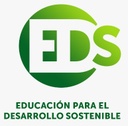Executive Secretary

International Symposium Education for Sustainable Development (ESD) 2021
The objective of this work is to present the description and analysis of a teaching experience in the postgraduate course of the Master's Degree in Management of the Educational Teaching Process of the “José Martí” Technological University, a program designed by modules, in a blended curricular model, which was redesigned and offered remotely with the necessary closure of the physical spaces of the universities during the pandemic caused by Covid19. The aspects on which the proposed strategy is based are: the design of flexible learning itineraries, the use of the possibilities of virtual environments, the integrative projects methodology for the treatment of the subjects, the self-management and autonomy of the student's learning. The article offers the result of the analysis, which was obtained, through online surveys, with closed and open questions of the opinions of the students, in relation to what the traffic and the experience of taking the modules represented in a totally online, in-depth interviews with experts, documentary analysis and triangulation of information. The results indicate a high level of satisfaction, highlighting as positive aspects: it favors the implementation of processes that pursue collaborative learning, self-management and the flexible itineraries offered, the proposal of tasks and projects for the autonomous work of students, tutoring received online, the compilation of digitized materials with information from primary sources on the topics, as well as the acquisition of digital skills by the participants.
Este trabajo tiene como objetivo presentar la descripción y el análisis de una experiencia docente en el postgrado de la Maestría en Dirección del Proceso Docente Educativo de la Universidad Tecnológica “José Martí”, programa diseñado por módulos, en un modelo curricular semipresencial, el que fue rediseñado y ofertado a distancia con el necesario cierre de los espacios físicos de las universidades durante la pandemia provocada por la Covid19. Los aspectos en los que se apoya la estrategia propuesta son: el diseño de itinerarios flexibles de aprendizaje, el aprovechamiento de las posibilidades de los entornos virtuales, la metodología proyectos integradores para el tratamiento de los temas, la autogestión y autonomía del aprendizaje del alumno. En el artículo se ofrece el resultado del análisis, que se obtuvo, a través de encuestas online, con preguntas cerradas y abiertas de las opiniones del alumnado, con relación a lo que representó el tránsito y la experiencia de cursar los módulos en un formato totalmente en línea, de la entrevistas en profundidad a expertos, del análisis documental y de la triangulación de la información. Los resultados indican un alto nivel de satisfacción destacando como aspectos positivos: se favorece la implantación de procesos que persigan el aprendizaje colaborativo, la autogestión e los itinerarios flexibles ofertados, la propuesta de las tareas y proyectos para el trabajo autónomo de los alumnos, la tutorización online recibida, la compilación de materiales digitalizados con información de fuentes primarias sobre los temas, así como la adquisición de las competencias digitales por los participantes.
About The Speaker

Dr. Tatiana Rigal Permuy







